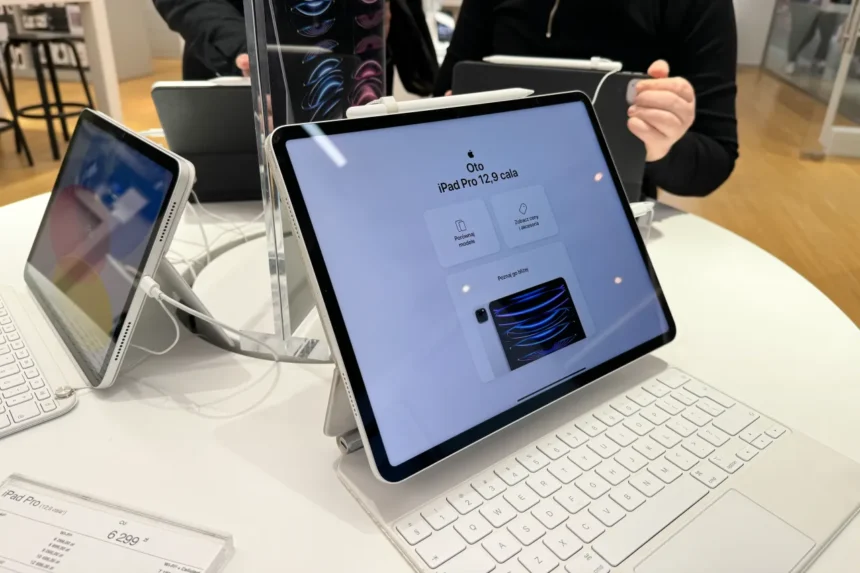A significant shift is coming to the world of Apple devices in the European Union. Starting next week on September 16, Apple will allow the installation of third-party app stores on iPads, coinciding with the rollout of the latest iPadOS update. This move represents a historic change for the tech giant and is a direct response to the European Union’s Digital Markets Act (DMA), designed to promote competition and fairness in the digital marketplace.
What is the Digital Markets Act?
The Digital Markets Act, which came into force last year, aims to level the playing field for businesses operating in the tech space by curbing the dominance of big tech companies deemed “gatekeepers.” The European Commission identified seven major tech firms that fall under this category, with Apple among them. Companies identified as gatekeepers provide “core platform services” (CPS) that users and businesses rely on to operate.
Initially, Apple’s iOS, the App Store, and its Safari browser were labeled as core platform services by the European Commission. However, in April, Apple’s iPadOS was also added to the list. While iPadOS user numbers didn’t strictly meet the DMA’s threshold, the Commission cited the strong “locked-in” nature of iPads for business users, justifying its inclusion.
Apple’s Deadline for Compliance
Apple had six months to align iPadOS with the DMA regulations, and the upcoming iPadOS 18 update will mark the company’s official compliance. As a result, iPad users in the EU will, for the first time, be able to download and install apps from alternative app stores, marking a significant departure from Apple’s traditionally closed ecosystem.
In addition to the new app store flexibility, web browser developers will also benefit. Previously, even third-party browsers like Chrome and Firefox on iOS and iPadOS were required to use Apple’s WebKit engine. With this update, developers can release browsers with their own engines, further expanding user options.
A Glimpse into the Future
For users wondering what this change will bring, recent developments in iOS give a clear hint. Five third-party app stores are already operational on iPhones in the EU, with the AltStore being one of the first. This alternative marketplace allows users to access apps that would typically be unavailable through Apple’s App Store, such as the Delta emulator, UTM virtual machine, and iTorrent.
Importantly, while Apple is opening up to third-party stores, it hasn’t completely let go of control. Apps on these alternative platforms will still need to be notarized by Apple for security purposes. Moreover, developers must agree to new business terms with Apple and pay a contentious “Core Technology Fee” if they surpass certain thresholds, a move that has sparked debate over whether Apple’s gatekeeping role has truly been diminished.
Epic Games Joins the Alternative App Store Landscape
The introduction of alternative app stores has piqued the interest of major developers. Epic Games, a long-time critic of Apple’s App Store policies, has already launched its own third-party app store in the EU. Through it, users can download and play popular games like Fortnite, Rocket League Sideswipe, and Fall Guys on their iPhones. Epic Games has confirmed plans to bring its entire catalog to the iPad as well, paving the way for a more diverse gaming experience for iPad users.
What About Web Browsers?
While third-party browsers have existed on iPadOS and iOS for some time, they’ve all been forced to use Apple’s WebKit browser engine under current regulations. With the DMA’s influence, that’s about to change. For the first time, companies like Google, Mozilla, and others will be able to introduce web browsers powered by their own technology. However, we have yet to see any major announcements about specific browsers being released with this newfound freedom, so users may need to wait a little longer before experiencing the full impact of this change.
The Path Forward
As Apple rolls out iPadOS 18, the introduction of alternative app stores marks a significant turning point in the company’s relationship with European regulators. While many users will welcome the new freedom to access apps and web browsers outside of Apple’s walled garden, developers and businesses are watching closely to see how this will play out in practice. The “Core Technology Fee” and the requirement for Apple notarization may still present barriers for smaller developers, keeping the ecosystem partially closed even as it appears to open up.
This change will undoubtedly influence the global conversation around app store policies, and it could set the stage for similar regulatory actions outside the EU. For now, iPad users in Europe are set to benefit from a more open, competitive marketplace as Apple adapts to the new digital reality shaped by the DMA.
Mark your calendars for September 16—the day Apple’s iPad ecosystem takes a step into a new era of openness and user choice.










